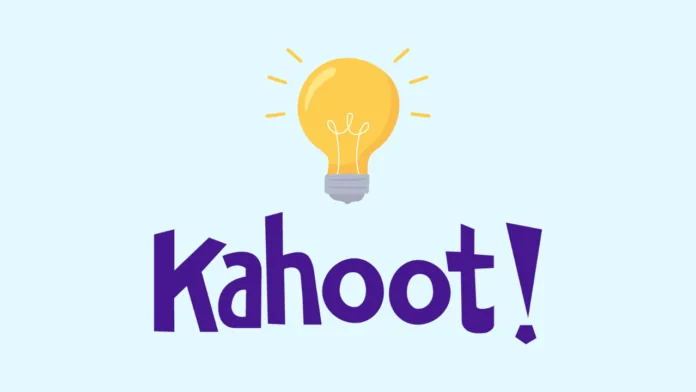
As with any popular platform, there is a growing interest in finding ways to outsmart the system. That’s the main reason why Kahoot hacks are so popular.
These methods are often seen as harmless fun, but they raise important questions about integrity, creativity, and the use of technology in education.
There are other alternatives you should also check out. Now, let’s explore the 24 best Kahoot hacks that continue to stir interest among users.
1. Auto-Answer Scripts
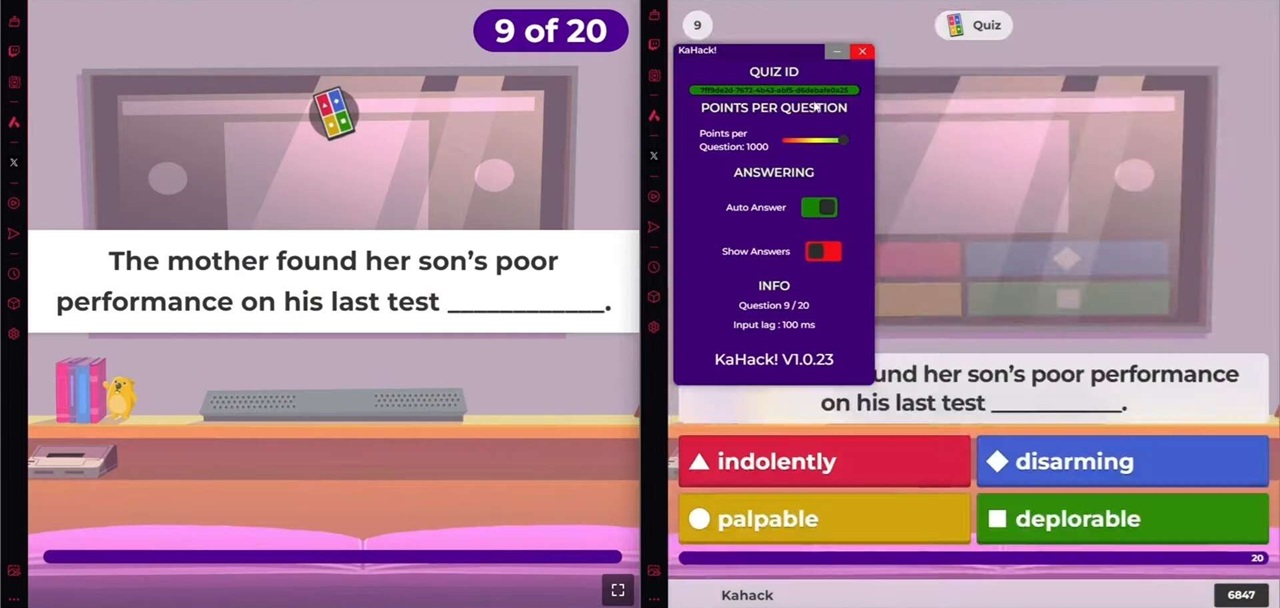
Auto-answer scripts are one of the most common hacks used in Kahoot. These scripts are pieces of code that players can run in their browsers to automatically select the correct answer for every question in a game.
Tools like “KaHack,” a JavaScript-based script, are frequently shared on GitHub. Users copy and paste the code into their browser console, and the script does the rest, ensuring a perfect score with minimal effort.
Various scripts are available on websites like greasyfork.org, where you will find cheats for games, and even browser extensions to download TikTok videos.
Example
- KaHack Script: Found on git hub, the script automates answers based on the game’s backend api, allowing users to win without even reading the questions.
How It Works?
- The script retrieves question data from the game’s server.
- Matches answers with the provided options.
- Submits the correct answer within milliseconds of the question being displayed.
Countermeasures
- Teachers can monitor unusual response times.
- Use tools like GoGuardian to check if students are running console scripts.
2. Bot Flooding
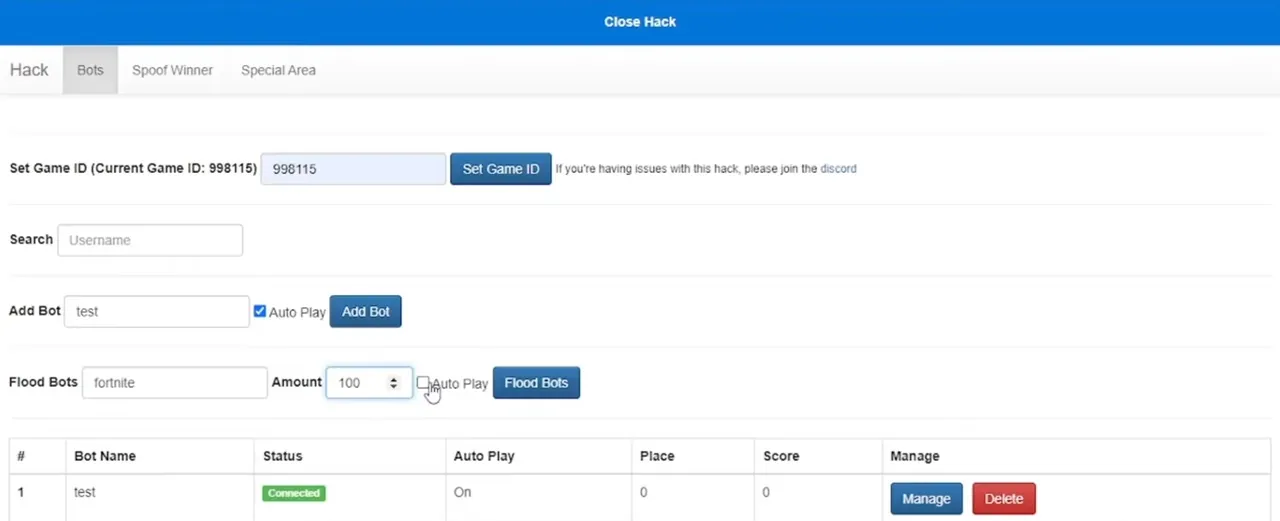
Bot flooding disrupts Kahoot games by introducing a large number of fake players. These bots clog the game, making it difficult for legitimate players to participate.
Students use programs like “Kahoot Flooder,” which allows them to input a game PIN and add hundreds of bots instantly.
Example
- A student used “Kahoot Ninja” to add 300 bots with random names, effectively crashing the game during a history quiz.
How It Works?
- Bots are created by sending automated requests to Kahoot servers.
- These bots mimic real players but do not answer questions.
Prevention Strategies
- Enable two-step authentication for joining games.
- Use the in-game lock feature to stop new players from entering after the game starts.
3. Answer Reveal Websites
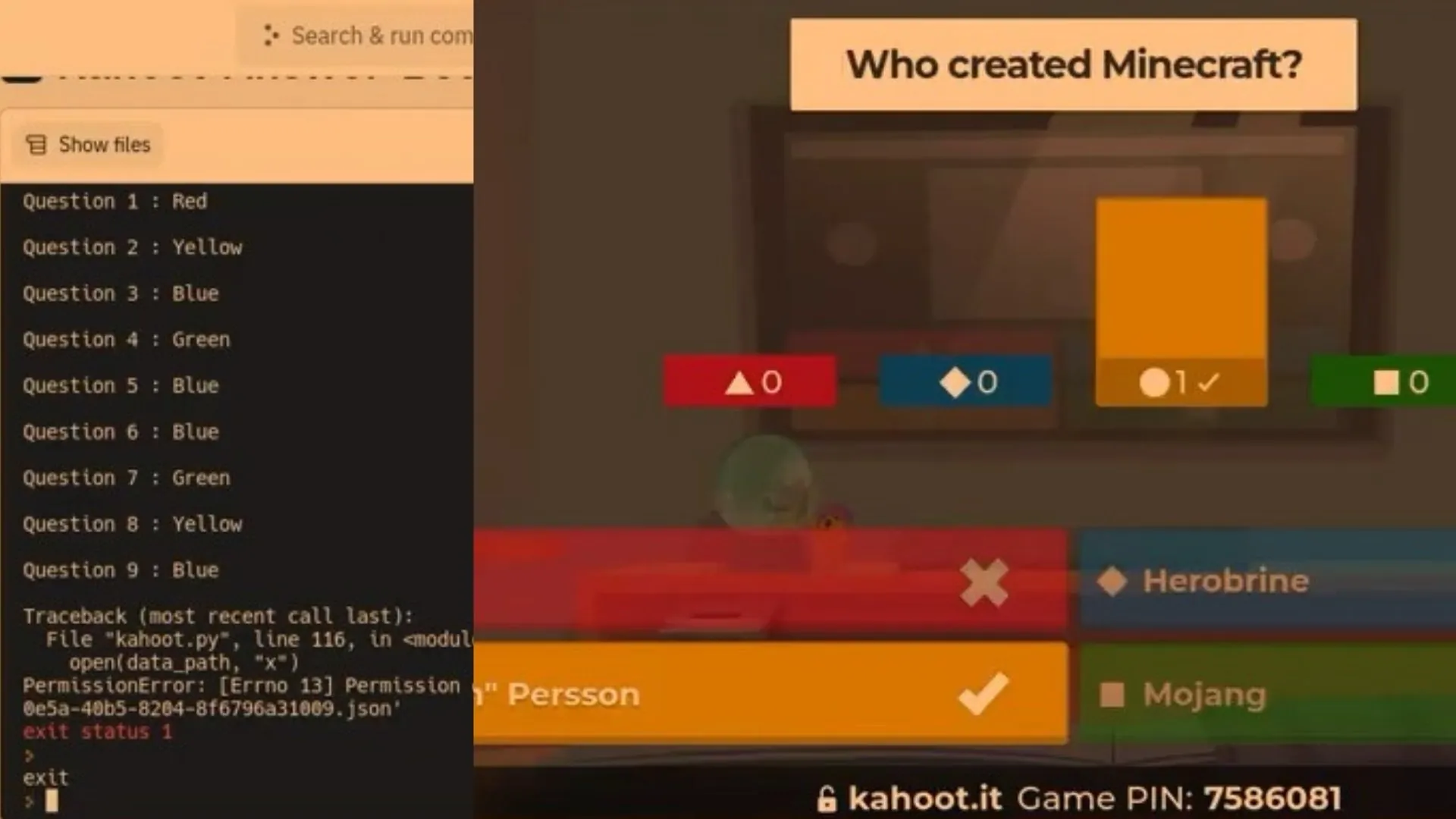
Some websites allow players to find correct answers to Kahoot quizzes in real-time. These sites, such as “School Cheats,” use quiz IDs to fetch answers directly from the game’s database.
Example
- Students enter the quiz PIN on the website and receive a full list of answers.
Key Features of Such Websites
- Real-time access to correct answers.
- Minimal setup required—just a PIN and internet connection.
How to Counteract?
- Keep quiz PINs private until all players have joined.
- Randomize questions to disrupt patterns these websites rely on.
4. Multiple Devices
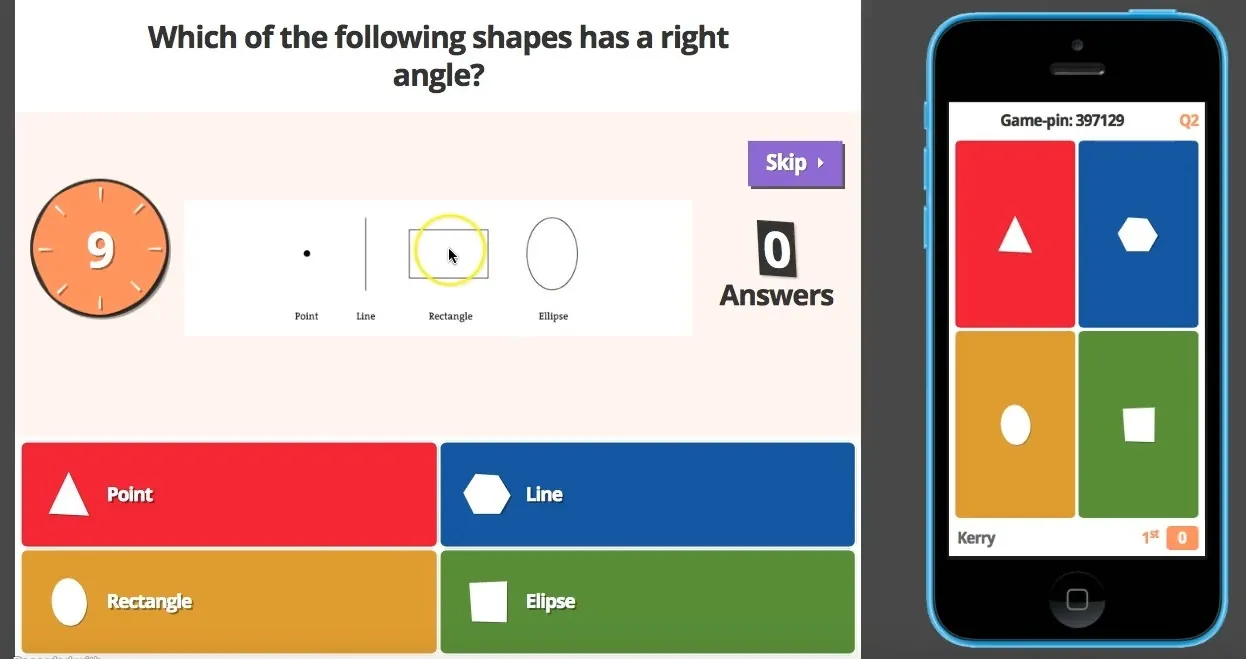
Using multiple devices is a simple yet effective method for gaining an advantage in Kahoot. Players log in with different accounts on separate devices to increase their chances of answering correctly.
Example
- A student logs in on a smartphone and a laptop. One device is used to search for answers online, while the other submits responses.
Why it Works?
- It provides additional time to cross-check answers.
- Multiple chances reduce the risk of incorrect responses.
Ways to Stop It
- Require unique identifiers for players, such as school email addresses.
- Monitor the number of participants closely to ensure no duplicate logins.
5. Study Modes
Study modes within Kahoot allow users to review questions and answers before participating in the actual game. While intended for educational purposes, some players exploit this feature to memorize answers in advance.
Example
- Before a math quiz, students duplicate the game in study mode to learn answers and guarantee a high score.
Benefits of Study Modes
- Great for revision and preparation.
- Helps reinforce knowledge in a low-pressure setting.
Teacher Tips
- Encourage legitimate use of study modes for learning.
- Assign study sessions separately from competitive games.
6. Fast Answer Scripts
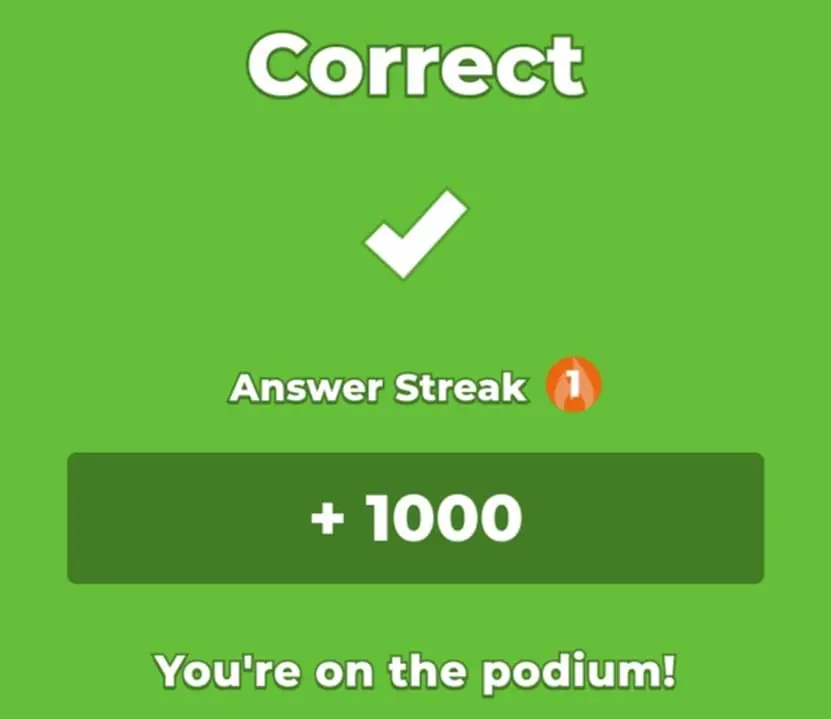
Fast answer scripts are browser-based tools that automatically select and submit answers at lightning speed. A similar hack is available for Gimkit if you are using this platform along with Kahoot.
These scripts are popular among players who want to maintain high accuracy and speed simultaneously.
Example
- A fast answer script shared on GitHub reduces response times to less than a second, making the user unbeatable in terms of speed.
Technical Insight
- The script interacts with Kahoot’s API to pre-select answers before the question is fully displayed.
- Works seamlessly on most browsers with a simple installation process.
Detection and Prevention
- Monitor response times—students with impossibly fast answers may be using scripts.
- Use classroom screen-sharing tools to check for unauthorized activities.
7. Guesswork Bots
Guesswork bots are designed to generate answers based on logic or probability, helping users increase their chances of getting the correct answer even without knowing it. These bots analyze question patterns and guess answers that are statistically more likely to be correct.
Example
- A bot programmed using Python evaluates multiple-choice questions and selects the option most frequently correct in similar quizzes.
How It Works?
- The bot scans the question and answer options.
- Uses probability or keyword matching to pick an answer.
- Submits the answer just before the timer expires.
Limitations
- May fail in quizzes with randomized or complex question structures.
- Relies on pre-set logic, which may not account for nuances in question phrasing.
8. GitHub
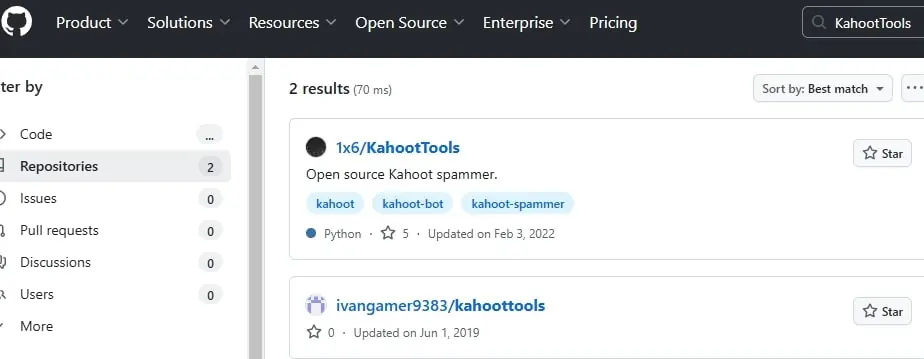
GitHub is a hub for Kahoot hacks, offering repositories with ready-made scripts for automating tasks, revealing answers, or flooding games with bots. Many of these are publicly accessible, making them a go-to resource for students looking to exploit the system.
Example
- Repositories like “KahootTools” provide scripts for automatic answering, bot flooding, and even creating fake players with offensive names.
Types of GitHub Cheats
- Answer Bots: Automatically select correct answers.
- Flood Bots: Overwhelm games with fake participants.
- Timer Bypasses: Remove time restrictions on answering.
Teacher Actions
- Search GitHub periodically for popular repositories.
- Inform IT departments to block GitHub domains.
9. Browser Console Cheats
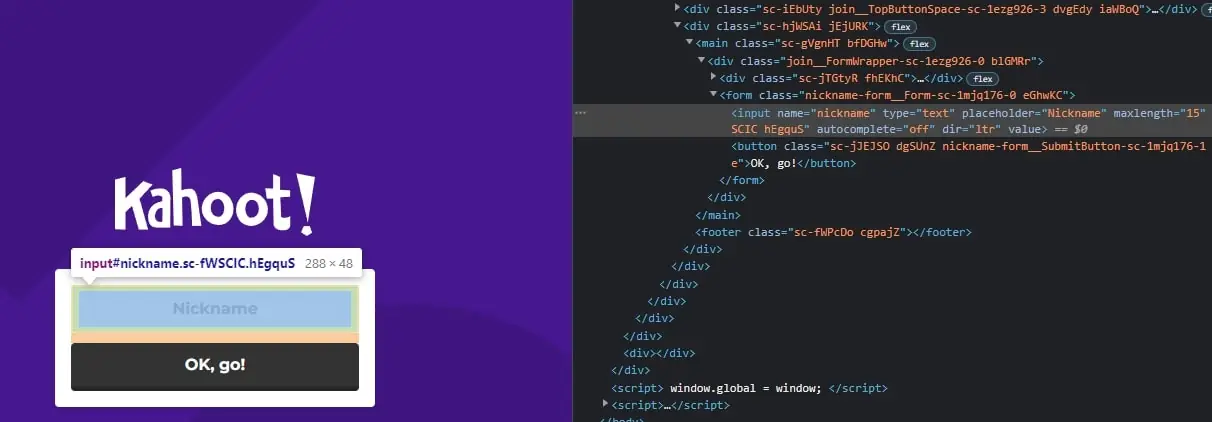
Browser console involve running JavaScript code directly in the browser’s developer console. This method is widely used because it does not require any third-party software and can be done quickly with minimal knowledge of coding.
Example
- User copies a script from a website and paste it into their browser console, which displays correct answers in real time.
How It Works?
- Open the developer console (Ctrl+Shift+J on most browsers).
- Paste the script into the console.
- Execute the script to access quiz answers or manipulate game features.
How to Prevent?
- Educate students on the ethical implications of using such methods.
- Use monitoring tools to detect unauthorized console access during quizzes.
10. Custom Extensions
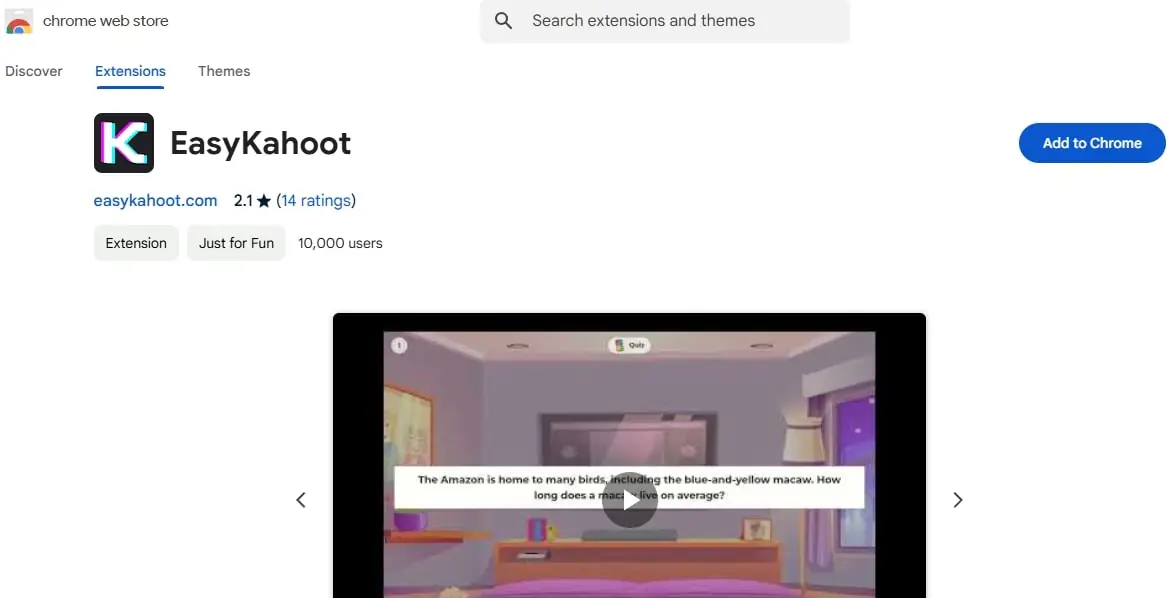
Custom browser extensions like “EasyKahoot” offer a seamless way to cheat Kahoot quizzes by integrating tools that reveal answers, automate responses, or even modify scores. These extensions are often available on platforms like the Chrome Web Store.
Example
- “EasyKahoot” provides real-time answers for Kahoot quizzes, allowing users to score perfectly with minimal effort.
Key Features
- One-click access to quiz data.
- Easy installation through browser extension stores.
- Compatibility with popular browsers like Chrome and Firefox.
Counteractions
- Disable browser extensions during quizzes using classroom management tools.
- Block known extensions through IT policies.
11. Proxy Sites

Proxy sites enable students to bypass school restrictions on accessing cheat websites or other blocked resources. By masking the user’s IP address, proxies allow unrestricted access to websites that host Kahoot hacks.
Example
- The user uses a proxy to access “School Cheats” from a school computer despite IT restrictions.
Popular Proxy Tools
- Free web proxies like “Hidester” or “KProxy.”
- VPNs with browser extensions, such as “Hola VPN.”
How to Block?
- Work with IT departments to detect and disable proxy usage.
- Use deep packet inspection tools to monitor network traffic.
12. Team Collaboration
Collaborating with friends is one of the simplest ways to gain an edge in Kahoot games. Players share answers in real time, either by sitting together or using group chats to coordinate responses.
Example
- A group of students creates a WhatsApp group to discuss answers during a live Kahoot quiz.
Why It Works?
- Combines the knowledge of multiple participants.
- Reduces the likelihood of wrong answers through consensus.
Teacher Advice
- Pair students intentionally to prevent cliques.
- Randomize questions to minimize the benefits of collaboration.
13. Two-Screen Strategy

The two-screen strategy involves using two devices simultaneously during a Kahoot game. One device is used to participate in the quiz, while the other is used to search for answers or review notes in real-time.
Example
- A student uses their phone to play Kahoot while keeping a laptop open to search for answers on Google or consult online cheat websites.
How It Works
- Device 1: Joins the Kahoot game and answers questions.
- Device 2: Used for internet searches or accessing preloaded resources to find the correct answers.
How Can Teachers Prevent This?
- Limit device use to a single screen during games.
- Walk around the classroom to monitor student activity.
14. Question Duplication
Question duplication involves finding the Kahoot quiz on the platform beforehand, duplicating it, and studying all the questions and answers before the live game. This method allows players to memorize correct answers in advance.
Example
- A student sees the quiz name on the teacher’s screen, searches for it on Kahoot, duplicates it, and practices with all the answers visible.
How to Prevent This?
- Keep quiz names private until the game begins.
- Use custom, unpublished quizzes to avoid public duplication.
15. IP Spoofing Bots
IP spoofing bots are used to bypass restrictions by generating multiple fake IP addresses to join Kahoot games. This method can flood games with fake players or hide the true identity of a cheater.
Example
- A student uses an IP spoofer to add hundreds of fake participants to a game, effectively crashing it.
Tools Commonly Used
- IP spoofing software or VPNs.
- Bot frameworks that randomize IP addresses for each bot.
Countermeasures
- Use Kahoot’s two-step authentication.
- Monitor the number of players and look for unusual spikes in participation.
16. Fake Name Generator Exploits

It exploits nickname generator by inserting inappropriate or misleading names into the player list. It is often used for pranks but can disrupt the flow of the game.
Example
- A bot generates names like “Anonymous123” or offensive words, making it difficult for the teacher to identify legitimate players.
How It Works?
- The nickname generator allows players to enter custom names.
- Bots automate the process to create random or offensive names.
Prevention Tips
- Require students to use real names.
- Enable manual nickname approval in Kahoot settings.
17. Kahoot Spam Bots
Spam bots are a popular method for disrupting Kahoot games by flooding them with fake participants. These bots are often programmed to join with random names and can overwhelm the server or make the game unplayable.
Example
- A tool like “KahootSpammer” is used to add 500 participants to a quiz, causing lag and confusion.
Features of Spam Bots
- High volume of fake players.
- Randomized names to evade detection.
- Sometimes designed to submit random answers.
Prevention Strategies
- Use game locks to prevent new players from joining mid-game.
- Monitor the participant list for an unusual number of players.
18. Tampermonkey Scripts
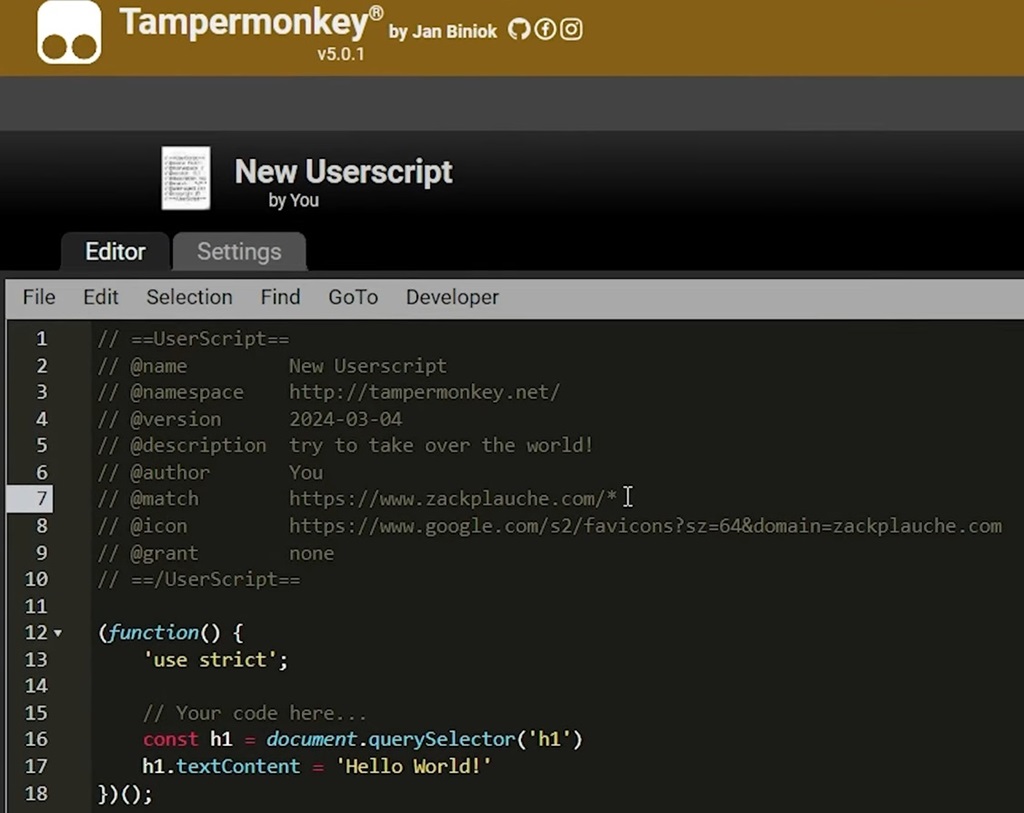
Tampermonkey scripts are browser-based cheats that can automate various Kahoot functions. These scripts are often shared on platforms like GitHub and can be installed as extensions, making them easy to use.
Example
- A student installs a Tampermonkey script that reveals answers in real-time during a Kahoot quiz.
Common Features
- Automatic answer selection.
- Timer bypasses to provide more time for answering.
- Score manipulation for an unfair advantage.
How to Counteract?
- Disable browser extensions during quizzes using classroom management software.
- Educate students about the ethical implications of using such hacks.
19. Answer Sharing Apps
Answer sharing apps and group messaging platforms are used by students to collaborate secretly during Kahoot games. Apps like WhatsApp, Discord, or even Google Docs allow players to share answers in real time without the teacher’s knowledge.
Example
- A group of students creates a shared Google Doc to input answers as they play the quiz, ensuring everyone in the group scores highly.
How It Works?
- One student identifies the correct answer.
- Shares it immediately via a messaging app or collaborative document.
- Other players use this information to answer correctly.
Solutions For Teachers
- Discourage the use of phones or messaging apps during quizzes.
- Design questions that require independent thinking rather than rote answers.
20. PDF Cheat Sheets
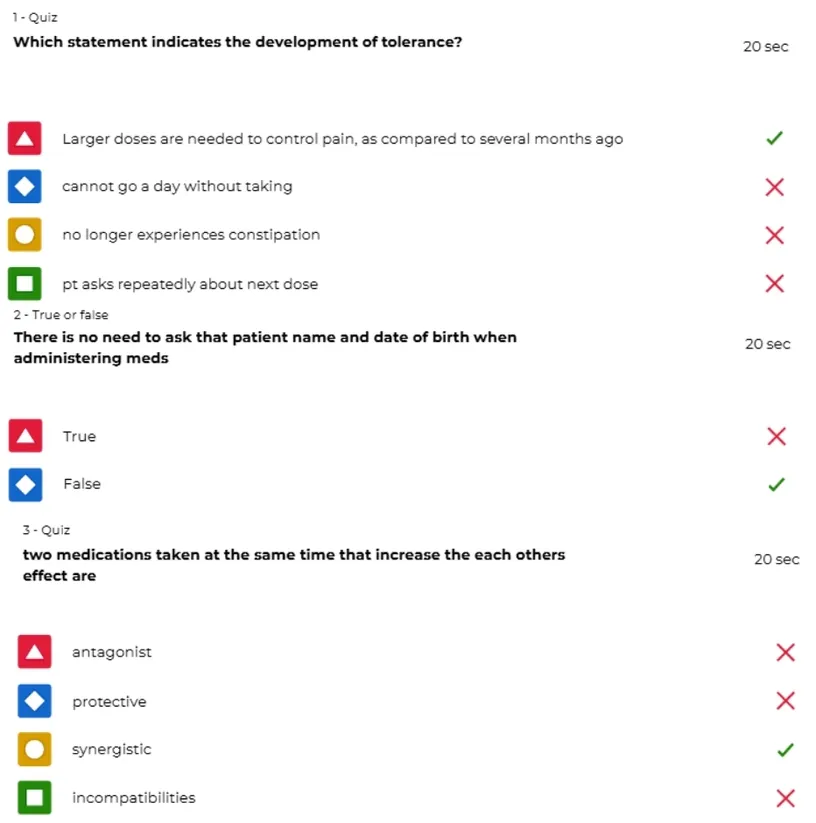
Students sometimes create PDF cheat sheets containing potential quiz answers or hints. These documents are often prepared in advance by copying answers from study modes or public quiz repositories.
Example
- Before a history quiz, a student creates a PDF with key dates and facts that match the quiz questions.
How It’s Done?
- Extract answers from Kahoot’s study mode or duplicate quizzes.
- Save them in a PDF or print format for easy reference.
How to Prevent?
- Use unpublished or custom quizzes that are not available online.
- Randomize question orders to reduce the effectiveness of pre-made cheat sheets.
21. Pre-Loaded Answer Sheets
Similar to PDF cheat sheets, pre-loaded answer sheets involve students accessing answers saved on their devices. These may include notes, screenshots of quizzes, or documents shared within a group.
Example
- A student saves screenshots of a quiz’s answers from study mode and references them during the live game.
Why It Works?
- Allows for quick access to answers without searching.
- Helps students appear faster and more accurate in their responses.
Teacher Tactics
- Monitor screen activity to identify students switching apps or screens.
- Randomize questions to minimize the value of pre-loaded answers.
22. Question Timing Hacks
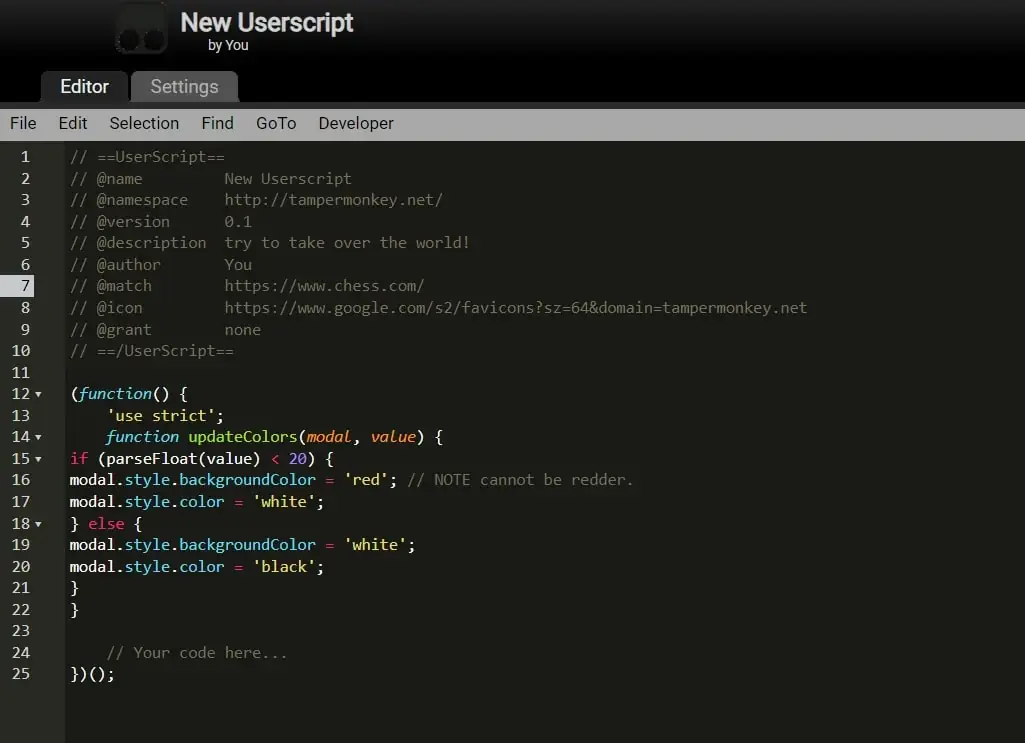
Timing hacks involve manipulating the timer to gain extra seconds for answering questions. This can be achieved through browser scripts or bots that delay the server’s countdown.
Example
- A Tampermonkey script adds 10 seconds to every question timer, giving the user more time to think or search for answers.
Features of Timing Cheats
- Delays countdown timers artificially.
- Reduces pressure, allowing time to cheat or confirm answers.
Preventive Measures
- Monitor response times—students answering unusually late may be using timing hacks.
- Use tools like GoGuardian to check for unauthorized browser activity.
23. Split-Screen Play
Split-screen play involves using one screen to participate in the quiz and another to search for answers or consult resources. This is particularly effective for players using devices with multi-window capabilities.
Example
A User splits the laptop screen, with Kahoot open on one side and Google search results on the other.
Why It’s Effective?
- Allows real-time participation without switching tabs.
- Reduces the risk of being caught during the game.
How to Counter?
- Limit device use to a single screen.
- Randomize questions to prevent easy searching.
24. Dynamic PIN Bypassing
Dynamic PIN bypassing is used to counter Kahoot’s two-step authentication, where the PIN changes every few seconds. Players or bots employ scripts to auto-refresh the PIN and maintain uninterrupted access.
Example
- A bot script automatically detects and inputs new PINs, allowing a player to join games even after the teacher locks the session.
Tools Commonly Used
- Scripts that scan and refresh PINs.
- VPNs to bypass IP bans during game locks.
Preventive Steps
- Monitor participants closely for rejoining attempts.
- Use game locks in conjunction with unique identifiers, like emails, to block unauthorized access.
Last Words
Exposing these 24 Kahoot hacks equips teachers with the tools they need to maintain fairness and integrity in the classroom.
By understanding the strategies students use, educators can stay ahead and create a learning environment where effort and honesty are valued.
The focus remains on helping students grow and learn in meaningful ways, leaving no room for unfair practices.
Disclaimer: We Do Not Support Cheating
This content does not promote or support cheating in any form. Every hack listed here is included only to help teachers understand what they may face and how to prevent unfair use of Kahoot in the classroom.
The goal is to support honest learning. Fair play, participation, and effort should guide every quiz and review session. Cheating ruins the experience for everyone, and teachers deserve clear strategies to protect their classrooms.
















